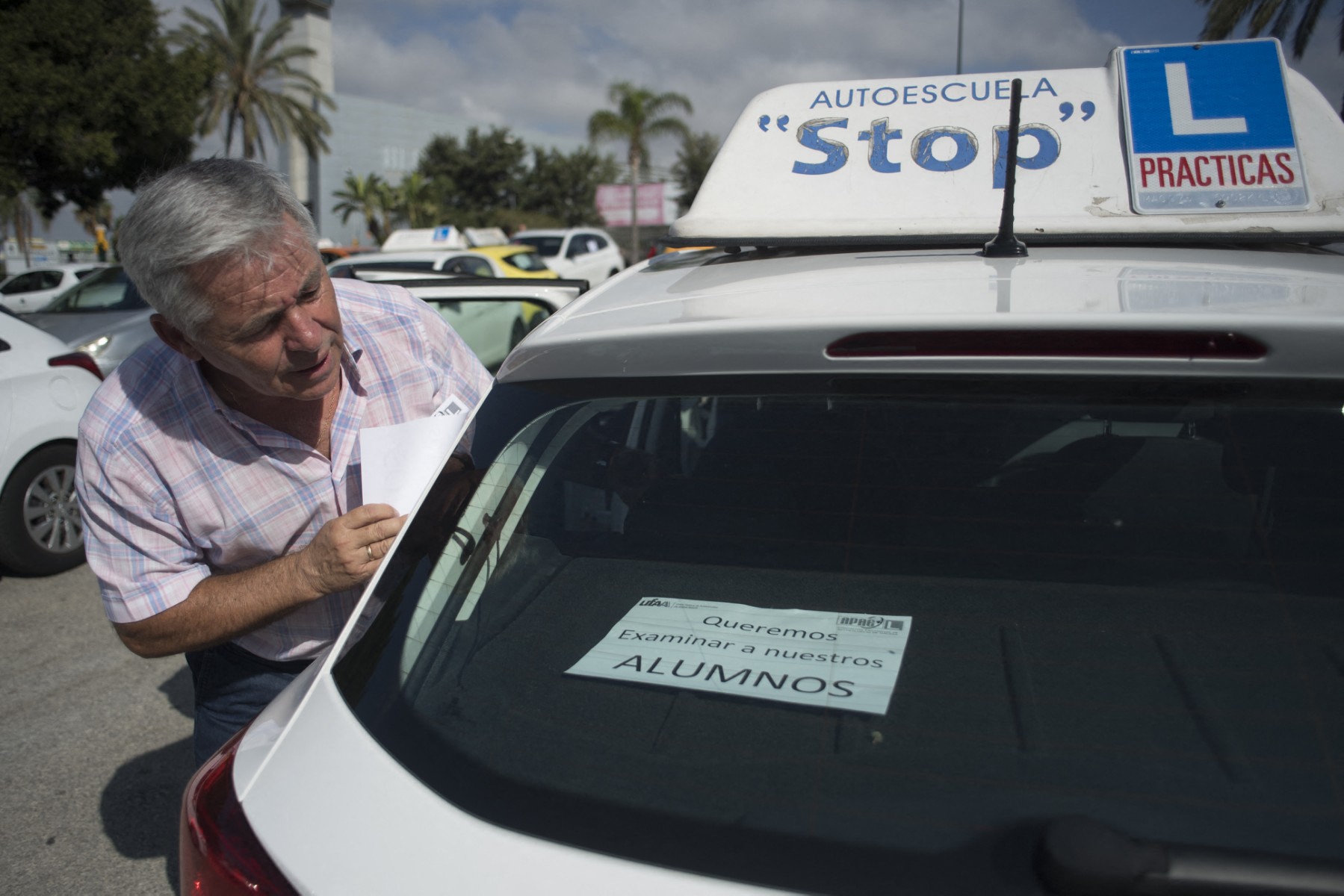Inside Spain: Marrying yourself and no country for driving examiners

In this week's Inside Spain, we look at the growing trend of sologamy among Spaniards, and how it's become virtually impossible to get one's driving licence in the Balearic Islands because examiners don't want to live there.
A few days ago, A Valencian politician made headlines for the strangest of reasons: he married himself.
Stephane Soriano, PP councillor for the town of Benaguasil, invited friends and family to a luxurious estate 25 kilometres from the Valencian capital to tie the knot with himself.
There was a banquet, emotional speeches, dancing, bouquet tossing, everything except a bride or another groom.
Believe it or not, there’s a name for this practice: sologamy. And it’s not the first time it has happened in Spain, with reports in the Spanish press suggesting it’s becoming increasingly common across the country.
In fact, there’s even a 2020 film called La Boda de Rosa (Rosa’s Wedding) starring Candela Peña in which the protagonist marries herself.
To be clear, there is no legal validity to such marriages, but it speaks volumes about how modern-day Spaniards are increasingly content to not commit to a relationship.
There are currently more singletons than ever - 14 million Spaniards - 52 percent of whom are men and 48 percent women, according to 2023 figures by Spain’s national stats body INE.
Spanish relationship coach Patricia Navarro told TV channel Antena 3 in 2024 that while teenagers believe that relationships involve sacrifice and struggle, older generations have an irrational fear of rejection or criticism.
And there’s no sign of these views changing, as an INE survey found that 80 percent of young Spaniards between the ages of 18 and 25 prefer to "take care of themselves" than to be in a relationship.
Navarro adds that Gen Z have often grown up with separated or divorced parents, thus developing emotional deficiencies that they have come to understand as normal, leading to a sense that being single is better than with someone.
READ ALSO: Spanish youth ditch dating apps for 'real life' love
Such beliefs have no doubt been exacerbated by dating apps, which are often used in order to quickly and easily engage in short-term, commitment-free relationships (or just sex) rather than solid, long-standing relationships that could eventually lead to something more serious.
Inevitably, this is also contributing to Spain’s diminishing birth rate, along with other crucial factors such as choosing careers over kids, Spanish women’s emancipation and, perhaps most importantly of all, not being able to financially afford children.
READ ALSO: The real reasons why Spaniards don't want to have children
This in turn partly explains why Spain’s government has a more open-doors approach to working-age migrants currently.
Foreigners are the diesel fuelling Spain’s booming economy, as a whole they tend to have more children than Spaniards and they guarantee a generational handover in an ageing country where 'natives' aren't having enough kids.
Meanwhile, self-loving, self-caring Spaniards are the perfect depiction of how much Spanish society has changed in recent years.
In a few generations, a culture famed for being people-loving, passionate and family orientated may no longer be quite the same.

In other news, people in the Balearic Islands are struggling to pass their driving licences more than ever, and it’s not because the exams are getting tougher.
Authorities on the Mediterranean islands are having problems hiring new driving examiners, as the salaries candidates are being pitched don’t match up to the increasingly high living costs in the archipelago.
The problem isn’t new to Mallorca, Menorca, Ibiza and Formentera, but up to now it’s been bosses in the hospitality sector that have found it hard to convince waiters and cooks to move over.
READ MORE: Spain's Balearics struggle to fill job vacancies due to exorbitant rents
In fact, thousands of people who have taken these jobs end up living in caravans and tents because their wages aren’t high enough to pay for a place to rent, sometimes not even for a room.
The average monthly rent in the Balearics is €1,640 in 2025, according to leading Spanish property portal Idealista. And in places like Palma de Mallorca it’s €2,987 on average.
So it’s no surprise that DGT driving examiners, whose net income is between €1,200 and €1,500 a month, are not sold on the idea of moving from the mainland to the pricey islands.
The result is that there are only 16 examiners in the entire archipelago, which have a population of 1.2 million.
The problem is particularly bad during the summer period as there’s a spike in the number of learners who want to use the holiday season to get their carnet de conducir, but 10 out of the 16 examiners aren’t working.
So it’s likely that the current waiting list of 7,000 eager drivers will most likely increase.
And that’s not all - eight of these examinadores have requested a transfer to another part of Spain, another wants to change position and one hopes to retire.
The Balearic driving examiner shortage encapsulates much of what is wrong with life in Spain right now: workers’ salaries (even those of state-paid civil servants) have not increased at the same alarming rate as rents and property prices.
Living costs in Palma de Mallorca, Ibiza, Madrid Barcelona, Málaga, Tenerife and other popular spots are just too high for average workers to enjoy a decent life. If the government doesn't step in, what's the outlook five years from now?
thelocal





